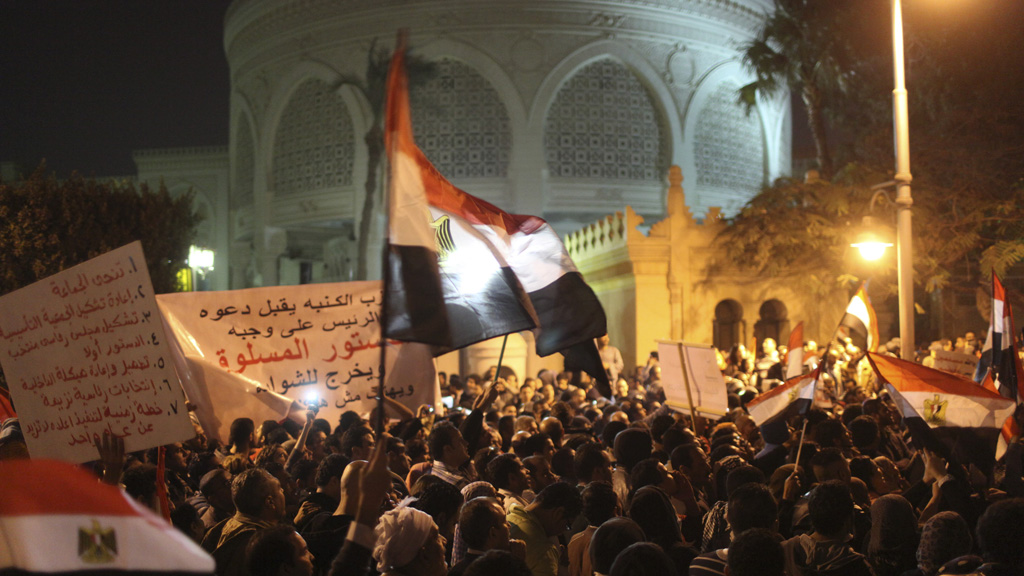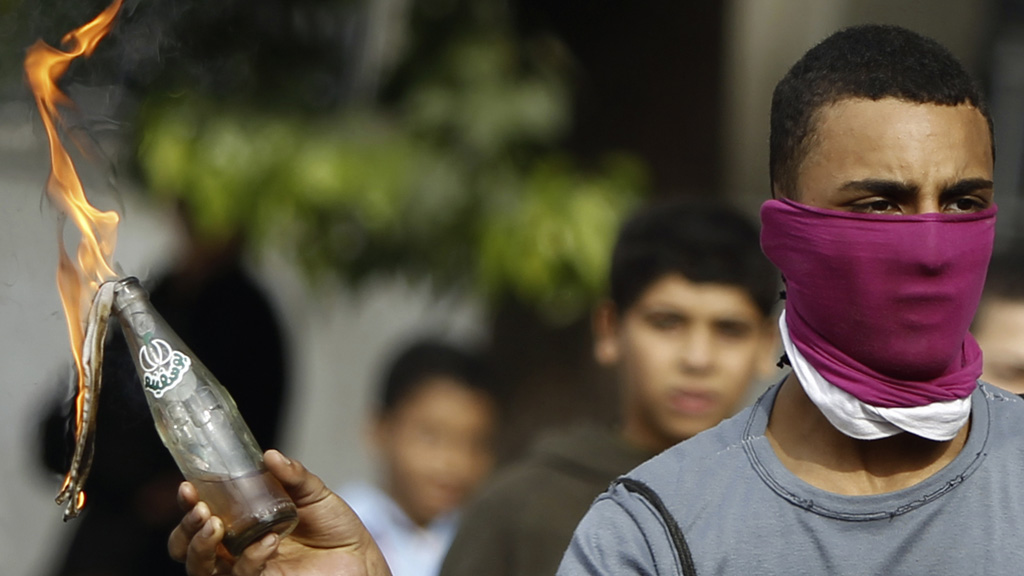Egypt protests: Petrol bombs thrown in Cairo clashes
Protestors and supporters of Mohamed Mursi are reported to have thrown petrol bombs at each other in clashes over constitutional reform.
Following a 10,000-strong protest on Tuesday night, against constitutional changes being made by Mr Mursi and the incoming Egyptian constitution, the Muslim Brotherhood called for its supporters to rally outside the palace in support of the president.
In response, leftist group The Popular Current also called its supporters to gather at the palace and protest against the president.

Ensuing clashes included brawls breaking out and stones being thrown, as well as petrol bombs.
On Tuesday riot police fired tear gas into crowds and 18 people were injured. Protestors were calling for Mr Mursi to step down after he brought in a decree last month giving him sweeping new powers.
Mr Mursi left the palace last night due to the protestors, but was understood to have returned this morning, despite a crowd of around 200 protestors remaining at the palace.
New constitution
Mr Mursi has been trying to push through Egypt’s new constitution, which is being drawn up in secret by a council largely consisting of members of the Muslim Brotherhood.
Riot police fired tear gas to dispel the crowds after they broke through barricades to reach the palace walls. The Health Ministry said 18 people were injured in the clashes.
Read here: Mohamed Mursi's first 100 days in office - success or failure?
A banner hanging from the palace gates on Tuesday evening read: “Our demands from the president: retract the presidential decree and cancel the referendum on the constitution.”

On Wednesday morning there were said to be around 200 demonstrators still protesting at the palace, blocking at least one entrance.
Protests erupted after Mr Mursi issued his decree on 22 November. The decree gave the president a number of new powers, including guarding his decisions from judicial review, and allowing him to replace Egypt’s prosecutor general.
Mr Mursi has defended the decree, arguing that it was needed in order to protect a swift democratic transition.
Last week the Islamist-led assembly which is drawing up Egypt’s new constitution pushed through a final draft of the new constitution, which will include limiting the length of term of an Egyptian president, and will bring in new powers over the military – though not enough for critics.
Mr Mursi plans to hold a referendum on the constitution in the next couple of weeks – but opponents have said they plan to attempt to block the constitution’s adoption, because the assembly drawing it up does not represent large parts of the Egyptian population.
Concerns have been raised by human rights groups that certain groups, suich as Egypt’s Coptic Chrisitan community and women, will suffer under the plans.